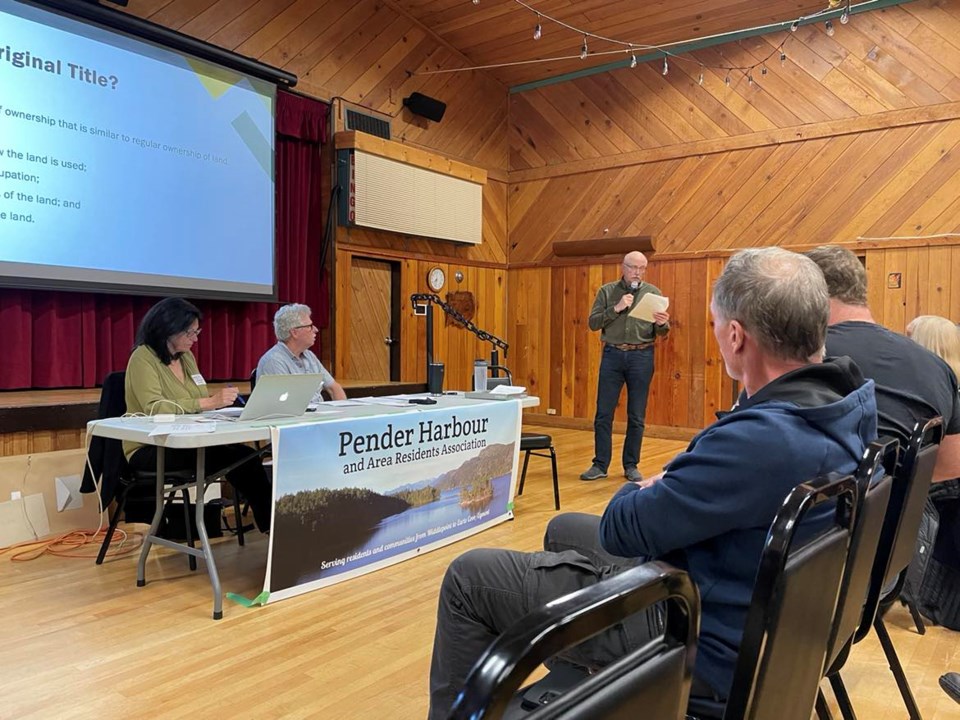Close to 200 people attended the Pender Harbour and Area Resident’s Association (PHARA) April 30 community update session at the area’s community hall.
PHARA president Peter Robson walked those assembled through an event agenda that provided for discussion of local efforts by the association and others.
Those included actions on derelict vessels and marine infrastructure, community gardens, an upcoming “Trash Bash” event, urban and community planning, and PHARA’s September 2024 BC Supreme Court challenge of the Declaration of the Rights of Indigenous People’s Act (DRIPA).
DRIPA court challenge update
Association director and retired lawyer Sean McAllister explained that as a result of PHARA’s court filing, the provincial government rescinded an order in council (OIC) under DRIPA to grant shíshálh Nation joint decision-making powers over dock tenures. In addition, McAllister said the province “walked away” from proposed changes to the Lands Act.
“And we’re taking some credit for that,” he said, which raised a round of audience applause. Noting that the court challenge continues, he indicated PHARA hoped the case will be heard by this fall, but that he was “fearful that we [PHARA] may never be finished."
That, he said, was because despite the repeal of the OIC, the province and Nation agreed to a Foundation Agreement addendum, which provides for the negotiation of Aboriginal title on the Sunshine Coast. He said that Aboriginal title allows a nation the right to decide how the land is used, exclusive use and occupation rights, the right to the economic benefits of the land and the right to manage the land. In the opinions of legal scholars that he has consulted with, Aboriginal title and private property rights are “oil and water”: they can’t exist together.
“We [PHARA] support real, fair and lawful reconciliation” with First Nations, he stated and expressed a need for sustainable public policy on reconciliation, which “right now, means something different to everybody." His concern was that legislative changes are being “pushed through without constitutional clarity,” public consultation or consideration for the rights of all British Columbians.
“The way that DRIPA is being implemented raises critical constitutional questions. If we don’t push back now, when? If we don’t tap the brakes here on what the province is doing it may be too late,” he said.
Court challenge issues wider than Pender Harbour
McAllister announced that the BC Cattlemen’s Association, one of the largest users of Crown land in the province, is supporting PHARA in its court challenge. As well, he said PHARA is launching an email campaign aimed at larger organizations and a “Go Fund Me” to raise funds for legal costs.
In closing his presentation, McAllister encouraged all to get educated on the issues and to consider joining PHARA to bolster membership numbers. “Share this story and let’s make sure that the province hears us,” he stated.
Concern about a lack of event attendance by regional, provincial, federal or First Nations’ government representatives was voiced by an individual during an audience comment opportunity. Robson had opened the session with a call to acknowledge and thank them but no representatives stepped forward.



